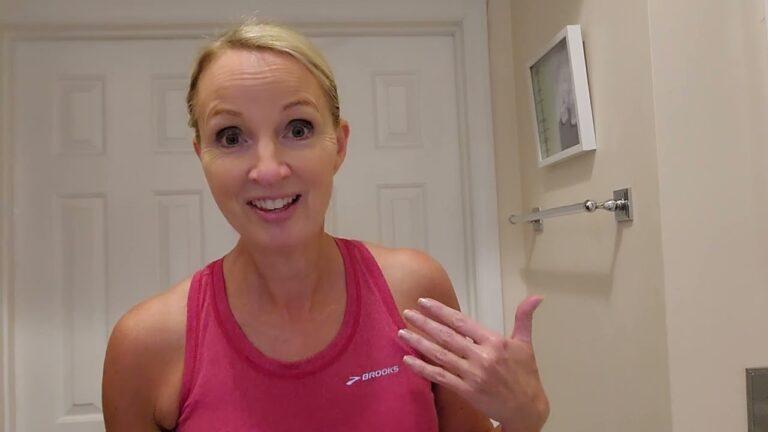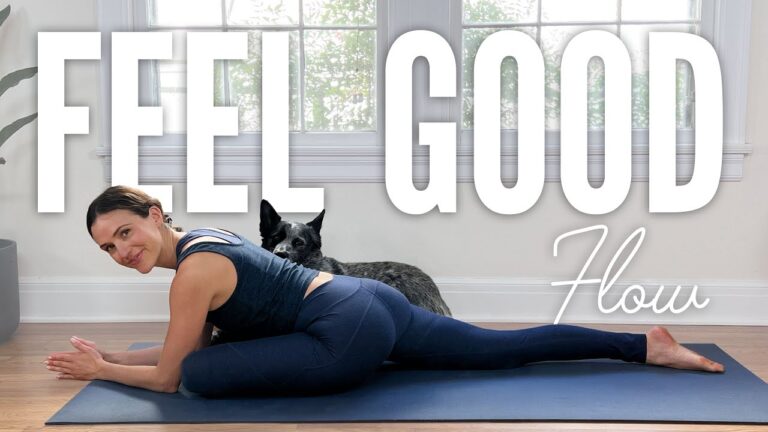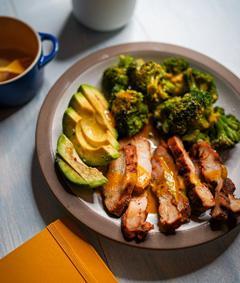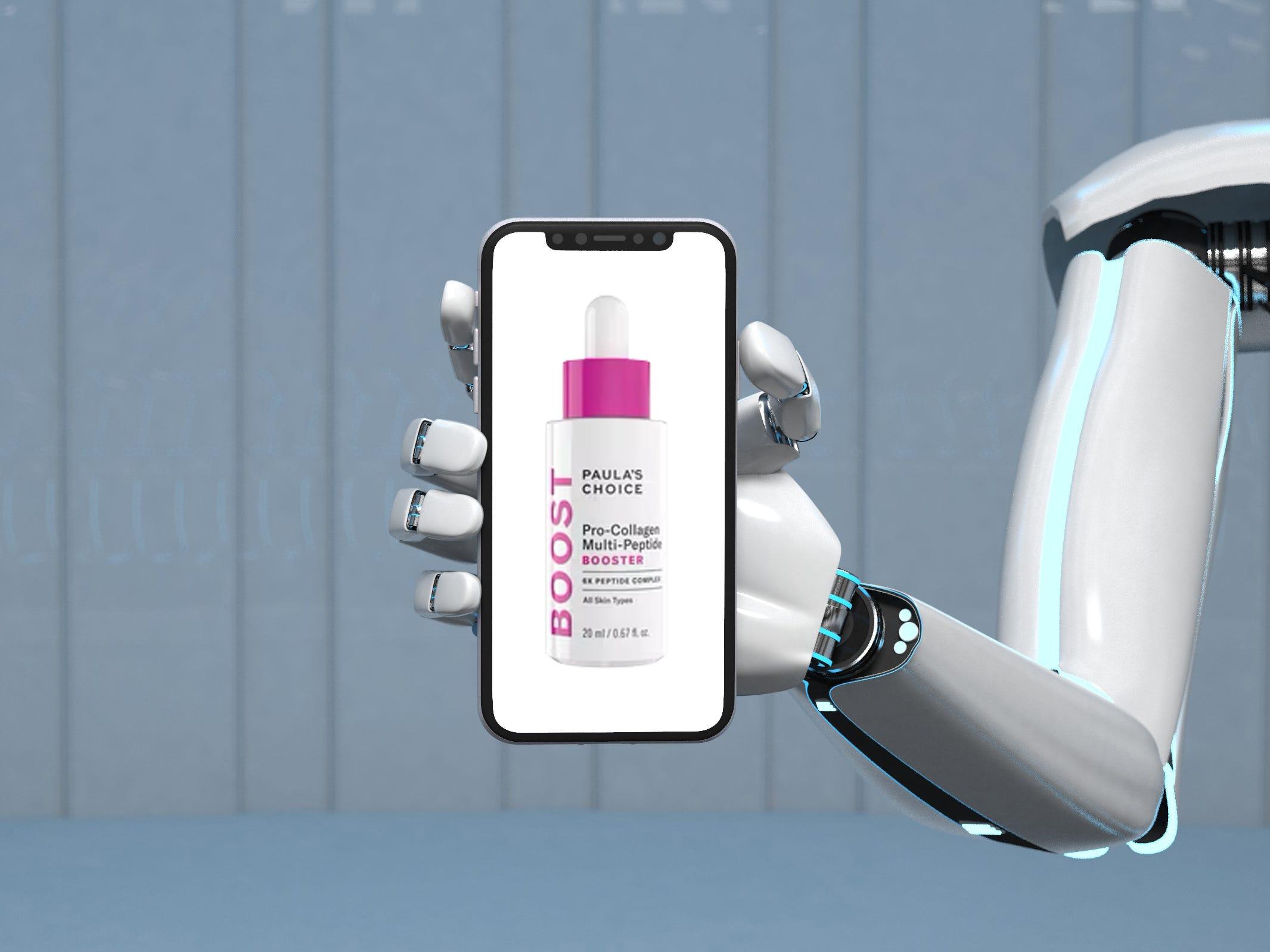
style-photography/Getty Images/Paula’s Choice
- I tried creating a personalized anti-aging skincare routine using ChatGPT.
- It took a few attempts to get usable instructions, which were long, overwhelming, and expensive.
- I think people with specific skin concerns should stick to dermatologists, who can give better advice.
AI chatbots have been dominating the news cycle as of late, with people using ChatGPT to do everything from plan a detailed Eurotrip to create a mostly unhelpful weight-loss meal plan.
While I’ve been wary of AI, I also know that its rapidly growing ubiquity is beyond my control. Instead of worrying about how it’ll eventually replace me, I’m better off learning how this technology works.
As a skincare reporter, I decided a good test would be to compare ChatGPT to my usual interviews with dermatologists. So, I asked the AI for a personalized skincare routine, one that would address anti-aging concerns in a 31-year-old woman.
While I did eventually get a plan that was feasible, it felt unrealistic and overpriced. I didn’t come away with any groundbreaking knowledge, but I did leave feeling reassured that AI probably won’t replace me or dermatologists anytime soon.
The advice was overwhelming and unhelpful
My first prompt was, “Write a skincare routine to reduce wrinkles in a 31-year-old woman.”
The routine it gave me felt generally similar to advice I’ve heard from dermatologists in the past — using peptide products and sunscreen are indeed good anti-aging skincare habits.
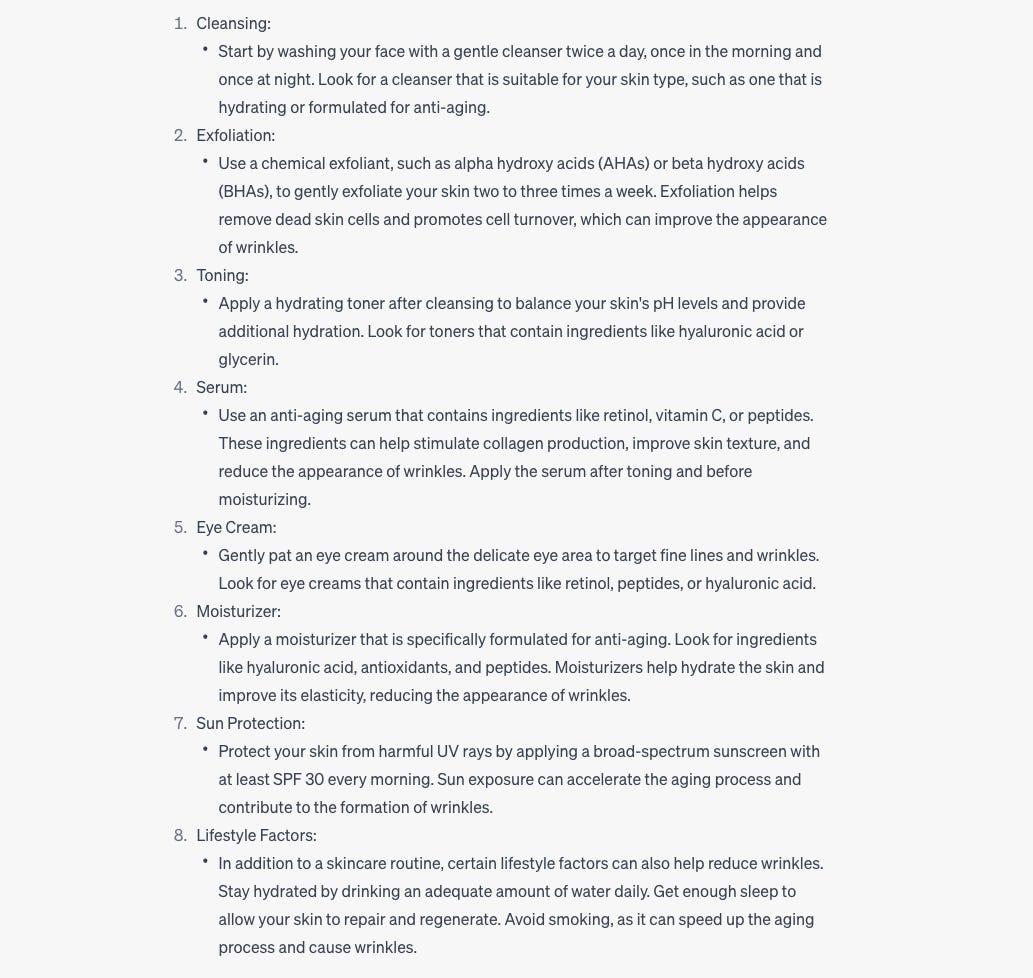
ChatGPT/Julia Pugachevsky
But it provided a lot of vague variations and product suggestions, with limited guidance on what order to put the products on or what time of day to use them — for example, many dermatologists recommend only using retinol at night because sunlight can make it less effective. Other products, like vitamin C serum, are usually recommended for morning use. Some retinols or exfoliants can also cause irritation or breakouts if you use them every day.
I tried again, this time asking, “What are the best anti-aging skincare products for a 31-year-old woman?” This list was a little more specific, but didn’t tell me how to use them or if it was ok to layer on several at once.
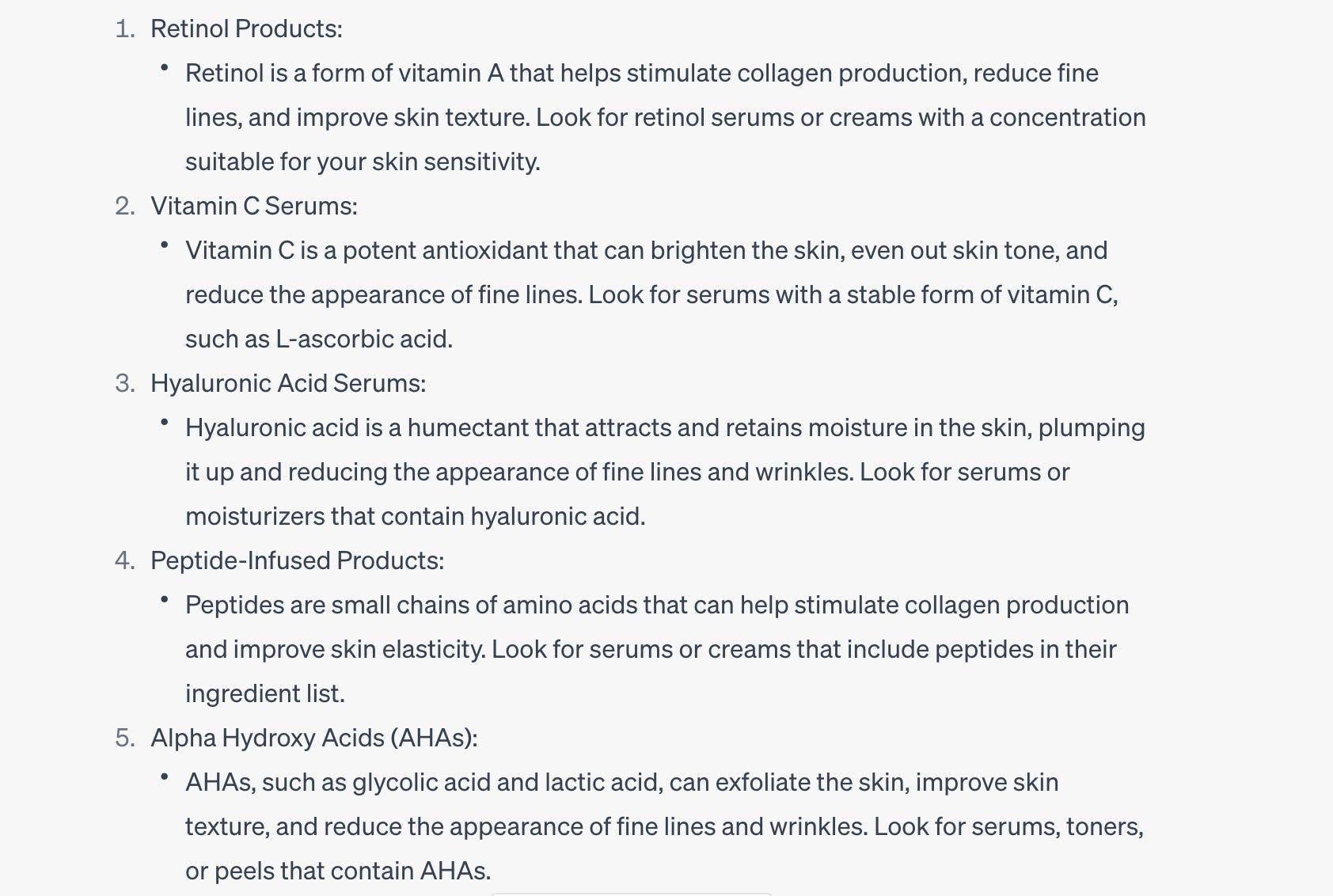
ChatGPT/Julia Pugachevsky
I felt bombarded with information, which is a common barrier to starting and sticking to a new skincare routine. I craved specificity — not all serums are made the same — and I wanted someone to just tell me what to buy.
Writing an extremely specific prompt led to better (and creepier) results
Frustrated, I decided to zoom in a little more and ask for “a daily skincare routine with specific product recommendations for a 31-year-old woman targeting forehead wrinkles.”
This, by far, was the best plan: A 6-step routine for both the morning and evening.
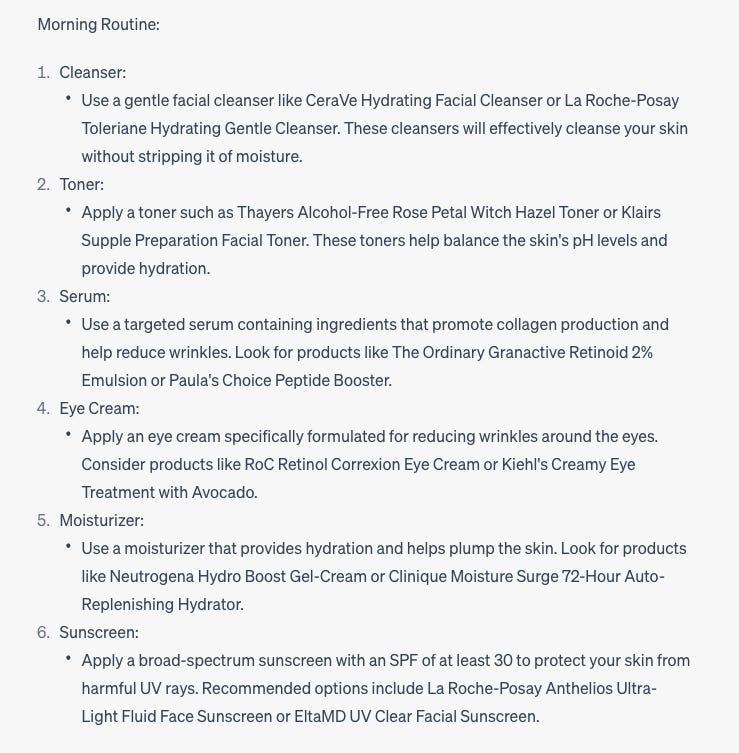
ChatGPT/Julia Pugachevsky
I not only got product recommendations, but it also seemed to provide me with both lower and higher-budget options. I could choose from a $11.70 The Ordinary serum or a $58 one from Paula’s Choice.
Creepily, it suggested three items I already use — my retinol serum, makeup remover, and sunscreen. The odds of picking these three from the thousands of options out there feel slim. I don’t know if I want to know how it gathered this information, so I’m just going to assume it’s a very eerie coincidence.
I think I’ll stick with dermatologists
Even though I’ve heard of all the brands ChatGPT recommended, and dermatologists have recommended the same products to me in the past, I still found the AI-generated routine too long and confusing.
One of the biggest perks of going to a reputable dermatologist is learning what you don’t need. Some products, like toner, might not be necessary for your skin type. Plus, some types of wrinkles can only fade from in-office procedures like Botox or lasers — something AI can’t assess (yet).
If I bought all the most expensive products ChatGPT recommended, I’d spend over $267 and commit to a lengthy regimen that might not even give me the results I want. I’d be slathering on cream after cream, hoping something would smooth my fine lines without accidentally damaging my skin barrier in the process.
I could see ChatGPT being useful for quickly finding a specific skincare product, as the ones it aggregated are popular among dermatologists and social media users alike. But for anything more complex, I’ll stick to the professionals.
This content was originally published here.

















